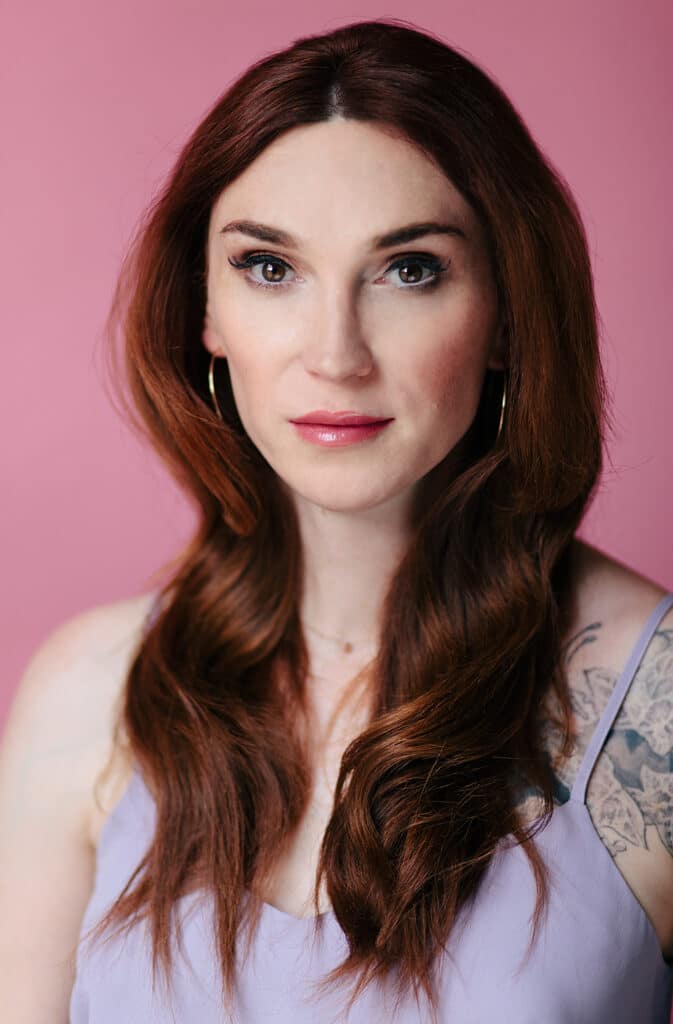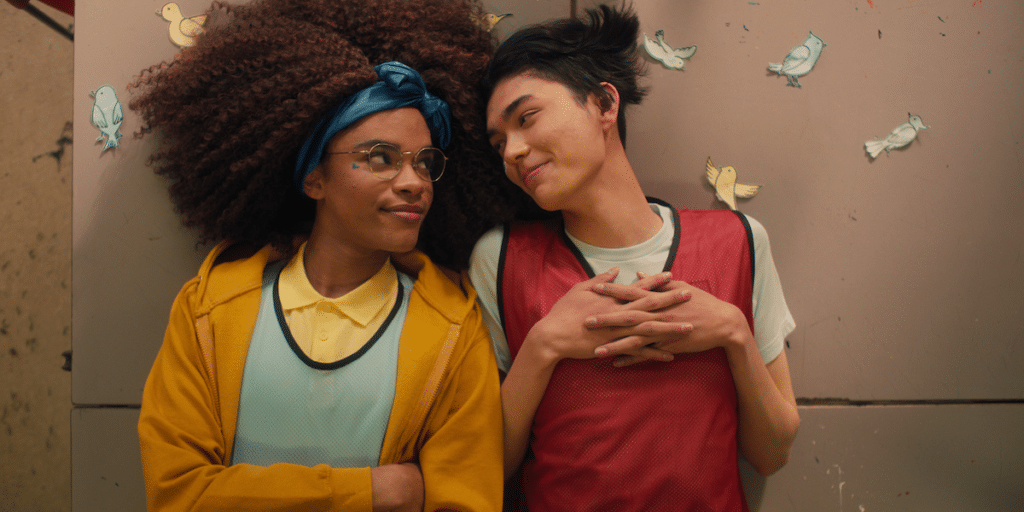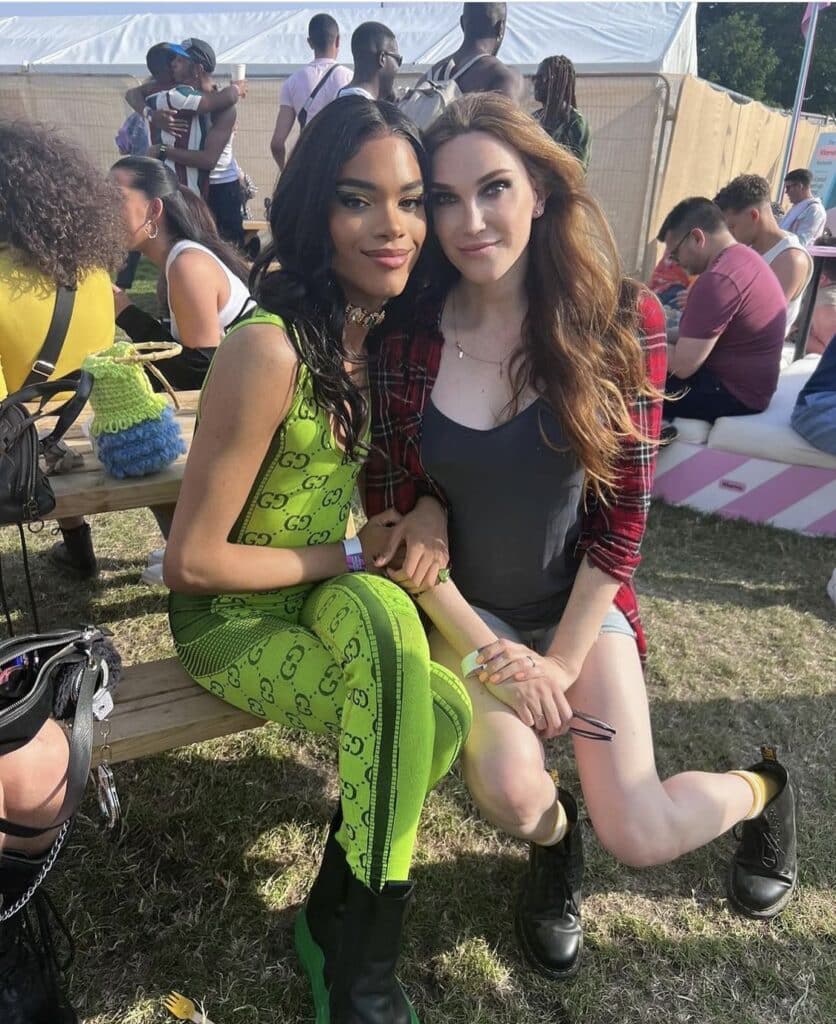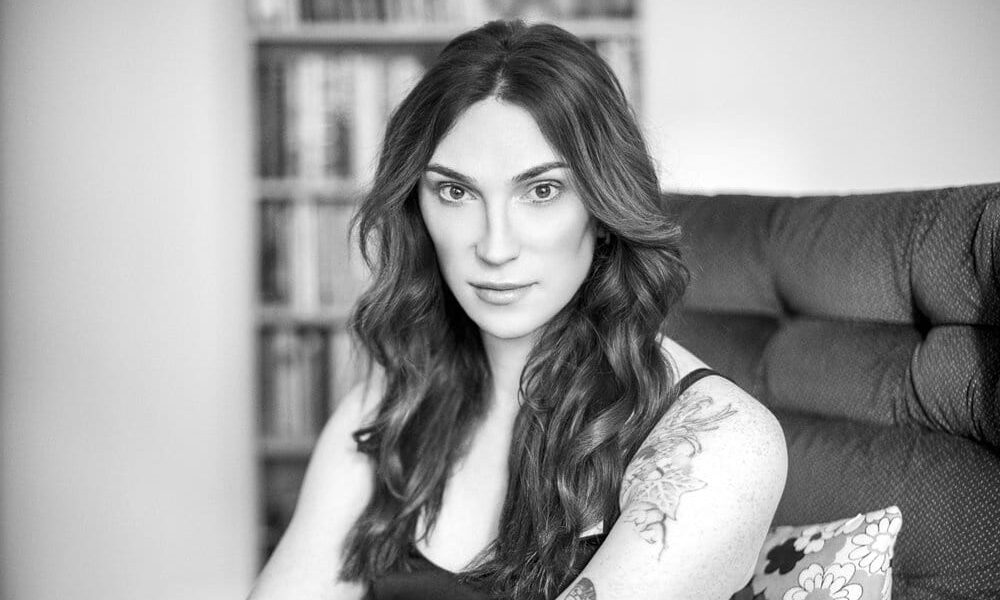Best-selling author Juno Dawson on witches, Doctor Who and why she’ll never trust a Tory

Juno Dawson. (Eivind Hansen)
Juno Dawson might have just racked up her first Sunday Times number-one bestseller, but she has no intention of pausing for breath.
The author is in “the middle of nowhere” on a writing retreat when she speaks to PinkNews, finishing the second book in the adult fantasy trilogy she began with Her Majesty’s Royal Coven (HMRC).
The first book – released to rave reviews – was Dawson’s first foray into the adult fantasy fiction world, the author having previously written young adult fiction and non-fiction, but that has not stopped its huge success. As of last week she joins a handful of trans authors who’ve had a Sunday Times number-one bestseller.
The series follows a coven of powerful witches in their 30s as they tackle identity crises, world-ending disasters and the pure joy of magic. The epic fantasy is packed with LGBTQ+ and trans representation and does not shy away from tackling the existential issues that face trans adults today.
“What an exciting time to be a trans writer,” Dawson tells PinkNews. “Despite relentless negativity in the media, when you look at the actual metrics of success, trans people are doing really well in literature.”

Juno Dawson. (Eivind Hansen)
She speaks with adoration of Shon Faye’s the Transgender Issue, Torrey Peters’ Detransition, Baby and Travis Alabanza’s upcoming book None of the Above.
“It feels like that it is the way that trans writers can make themselves heard in a way that I don’t think we can journalistically,” she says of book-writing.
“We are sneaking a lot of politics under the radar. There was so much I wanted to say about trans rights. So much I wanted to say about inclusion. So much I wanted to say about intersectionality, and women and feminism.
There’s a lot of allegory – but first and foremost, it’s a fun story about witches.
“I could have just written loads of pieces for The Guardian and had horrific trolling on Mumsnet or I could do it on my own terms. There’s a lot of allegory and there’s a lot of politics – but first and foremost, it’s just a super fun story about witches.”
For Juno Dawson, using this medium was a great relief from the past five to six years of attacks on trans rights.
“It has been gruelling,” she saus, “it constantly feels like we’re being asked to defend ourselves. You get people asking if you have a comment on gender-neutral gingerbread biscuits.”
“Having a joyful and well-rounded representation of trans people is hugely important,” Dawson adds. Not just in books – but in all arenas. That’s why Netflix’s Heartstopper was so crucial.
“I think it has struck such a chord, especially with younger LGBTQ+ readers,” she explains.
“Certainly Elle’s character is so beautifully played by Yasmin Finney. Nobody’s ever questioning her identity as a girl. Her trauma stems from the fact that she fancies this guy and she doesn’t know if he likes her back. Her identity isn’t called into question and I think that’s incredibly refreshing.

Yasmin Finney and William Gao in Heartstopper. (Netflix)
“That’s true of HMRC as well. In the first novel of the trilogy, there is a trans character at the centre of a power struggle but her identity is her identity. Certainly, as a trans author, I’m clearly not going to try to undermine the way she feels about herself.”
Finney shot to fame for her role in Heartstopper and has since joined the Doctor Who universe.
Juno Dawson is part of that universe herself – she was responsible for the acclaimed audio spin-off Doctor Who: Redacted, which centred on three queer women, and her “body is ready” for Russell T Davies’ return to the franchise.
“Russell has done nothing but champion trans rights. He’s spoken out against the LGB Alliance. I mean, it’s just perfect, isn’t it? Ncuti, Russell, Yaz, Catherine Tate, David Tennant. What a gift.”
Dawson has nothing but respect for Finney, who she has now met a couple of times.
“When I met Yaz she was incredibly self possessed,” she says.
“I was really struck by just how confident they were. Yaz and I have stayed in touch, there are still so few trans people working in the media. It is a very bumpy landscape for trans people, it does sometimes feel like people are trying to trip you up.

Yasmin Finney and Juno Dawson. (Instagram/Juno Dawson)
“Anything you say, can and will be used against you on social media forever. But she is part of this generation who has grown up online almost like she’s been in training for it. She is so professional, and carries herself with such dignity.”
As a prolific trans rights activist and queer creative Juno Dawson is all too familiar with the choppy waters of social media.
“Twitter is actively bad for my mental health, it has worsened my anxiety,” she says. “Beyond trans stories, with global warming and the war in Russia, we are constantly keeping ourselves in a state of agitation. I think it’s time for me to bow off Twitter.”
She is keen to emphasise that the most important work allies can do is in the real world.
People have this weird pressure to have your statement on social media when something happens globally. What is it doing?
“What’s more rewarding is to get out there and do things on a grassroots level,” she says.
“March, protest, help at a food bank, remember that LGBTQ people will feel the cost of living crisis more than cis straight people, put pressure on your MPs. People have this weird pressure to have your statement on social media when something happens globally. What is it doing? We saw this with all those people blindly sharing black squares in support of Black Lives Matter.”
And looking at the state of the Tory leadership candidates who have come out against the Equality Act, suggesting re-implementing a form of Section 28 and generally undermining trans people – solidarity has never been so important.

Sunday Times number one bestselling author: Juno Dawson. (Jack Latham)
“What we have all learned this summer is that as LGBTQ+ people we absolutely cannot trust a Tory,” Dawson says. “Those leadership candidates could not have thrown LGBTQ+ people under the bus faster. We were fodder. If we can’t rely on the central government what can we do? We can do stuff at a local level.
“Also, I’m not seeing Keir Starmer do anything about people within his own party. Rosie Duffield, Marsha de Cordova should have the whip removed.”
It isn’t just politics – despite progress being made, there is still some way to go for trans representation in the media.
“The tabloid media would have you believe that there is some sort of conflict between trans women and feminism,” Dawson says.
“But in television and publishing I’m surrounded by cisgender feminists who are trying really hard to include trans women. And where are their voices? For example Michaela Coel, with I May Destroy You.
“She cast both myself and Tyler Luke Cunningham in solidarity. It was Michaela Coel saying that there are trans people in this world so I’m going to put them in my TV show.”
She is also clear on how the publishing industry needs to do more.
“We need some trans and non-binary people working for publishers on the other side of the desk,” Dawson explains. “There is a risk when it comes to attempts to diversify publishing to just acquire books by marginalised writers.
“Of course it is important to give us a voice, but what we don’t have is any power. We are not in decision-making roles. We’ve seen the darker side of this when some publishers publish books by so-called gender critical authors. They say ‘we’ve got to hear from both sides’.
“That causes real issues within publishers, because you have staff editors, publicists, salespeople and marketing people working on really transphobic books. I think it’s OK to call hate, hate.”

